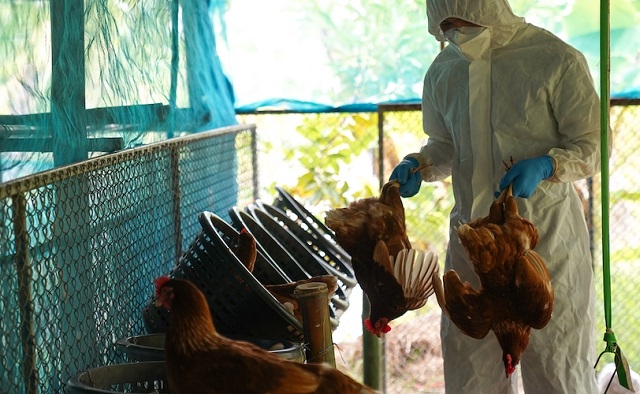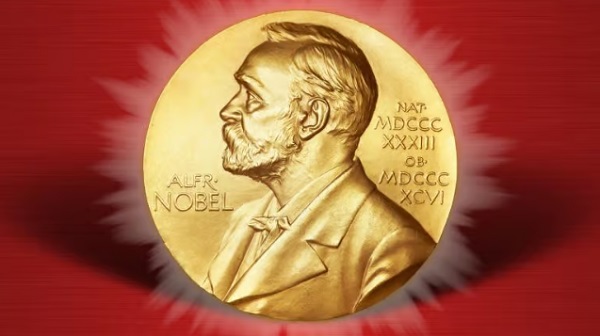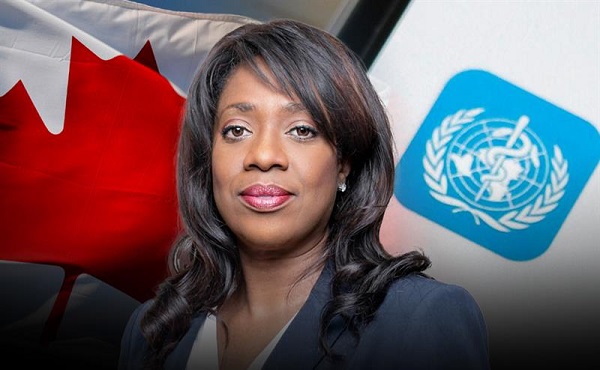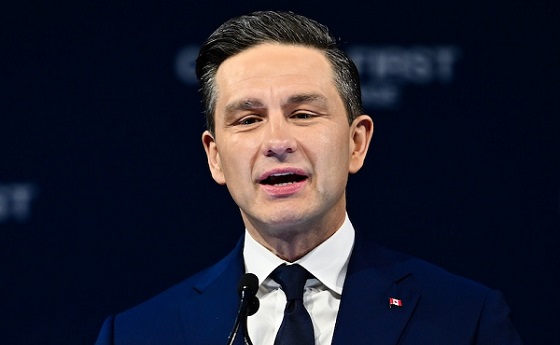Brownstone Institute
Could Bird Flu Be the October Surprise?

From the Brownstone Institute
By
In its current iteration, bird flu has caused no widespread human illness, no human deaths, and sporadic outbreaks in farm animal populations. However, there is much evidence that bird flu could be used as a bioweapon.
Bird flu was the hot topic in pandemic fear-mongering until very recently. Just a few months ago, former CDC director Robert Redfield publicly described Bird flu (also known as H5N1 Influenza A or Avian Influenza virus) as the likely next pandemic – predicting a laboratory-leaked virus as the cause. Meanwhile, Deborah Birx, aka the “Scarf Lady” of Covid infamy, was making the TV news, promoting an unrealistic and excessive program of testing farm animals and humans for Bird flu.
At present, bird flu seems to have been put on the back burner by the authorities. Monkeypox has since taken center stage, with the World Health Organization declaring a state of emergency over that virus. Furthermore, the “experts” have trotted out numerous other viruses with which to terrify the public. Examples include West Nile virus – who no less than Anthony Fauci himself supposedly contracted – and even the exotic “Sloth virus” (also known as Oropouche virus).
The first step in dealing with these continual reports of horrific pathogens is recognizing the vital importance of living in knowledge rather than in fear. “Fear porn” is a real psychological weapon and one that is being used against us on a daily basis. As we painfully learned during Covid, a terrified population is easily manipulated, controlled, and exploited. As free citizens, we must remain mindful and knowledgeable, rather than fearful, about the flood of information and propaganda that is hurled at us.
Regarding bird flu, we should remain mindful of the following. In its current iteration, bird flu has caused no widespread human illness, no human deaths, and sporadic outbreaks in farm animal populations. However, there is much evidence that bird flu could be used as a bioweapon. Furthermore, it could also be applied to disrupt the November 5 US Presidential election.
Here are 3 reasons why bird flu may still be weaponized to alter the election:
- Multiple bio labs in the United States and abroad – such as the lab run by Yoshihiro Kawaoka, PhD at the University of Wisconsin – perform alarming Gain-of-Function research on the H5N1 virus, making variants of the virus that are much more dangerous to humans than variants that occur in nature. These labs have had leaks with alarming frequency. The current strains of bird flu in the US show strong genetic evidence of having originated in a laboratory. A laboratory leak of a new strain of the virus, manipulated to be highly transmissible and/or pathogenic in humans, remains a real possibility.
- The “International Bird Flu Summit” will be held on October 2-4, 2024 at the Hilton Fairfax in Fairfax, VA – just outside Washington, DC – exactly one month prior to the election. Listed topics include “Command, Control and Management,” “Emergency Response Management,” and “Surveillance and Data Management.” If this sounds eerily reminiscent to you of the Covid lockdowns – which were also closely preceded by government-based planning exercises – your memory serves you well.
- The infrastructure is already in place for a “pandemic” of bird flu, much more than it is for other potential pathogens. Already, widespread testing of farms is underway. The development of bird flu vaccines has increased dramatically. The FDA has already approved vaccines made by Sanofi, GSK subsidiary ID Biomedical Corporation of Quebec, and CSL Seqirus, while Moderna recently received a $176 million government grant for its mRNA-based bird flu injection, which is in development.
In the bigger picture, a number of viruses could potentially be employed as an “October Surprise” to disrupt the election. Bird flu appears to be a leading candidate (pun intended), but it is not the only one.
We, as citizens, must remain vigilant to this threat to our electoral process. We should contact our local and state officials now, before anything is attempted, and express our absolute insistence on fair, legal, and regular elections. We should share this information widely with others so that all are aware of what might be attempted. Over the longer term, we must work to end Gain-of-Function research.
With Covid, we experienced first-hand what can be done to our civil rights and to our Constitutionally guaranteed electoral and governmental processes when a fear-driven, emergency-based takeover of society occurs. As free citizens, we must never allow this to happen again. From now on, we must live in knowledge, not in fear.
Brownstone Institute
The Doctor Will Kill You Now

From the Brownstone Institute
Way back in the B.C. era (Before Covid), I taught Medical Humanities and Bioethics at an American medical school. One of my older colleagues – I’ll call him Dr. Quinlan – was a prominent member of the faculty and a nationally recognized proponent of physician-assisted suicide.
Dr. Quinlan was a very nice man. He was soft-spoken, friendly, and intelligent. He had originally become involved in the subject of physician-assisted suicide by accident, while trying to help a patient near the end of her life who was suffering terribly.
That particular clinical case, which Dr. Quinlan wrote up and published in a major medical journal, launched a second career of sorts for him, as he became a leading figure in the physician-assisted suicide movement. In fact, he was lead plaintiff in a challenge of New York’s then-prohibition against physician-assisted suicide.
The case eventually went all the way to the US Supreme Court, which added to his fame. As it happened, SCOTUS ruled 9-0 against him, definitively establishing that there is no “right to die” enshrined in the Constitution, and affirming that the state has a compelling interest to protect the vulnerable.
SCOTUS’s unanimous decision against Dr. Quinlan meant that his side had somehow pulled off the impressive feat of uniting Antonin Scalia, Ruth Bader Ginsberg, and all points in between against their cause. (I never quite saw how that added to his luster, but such is the Academy.)
At any rate, I once had a conversation with Dr. Quinlan about physician-assisted suicide. I told him that I opposed it ever becoming legal. I recall he calmly, pleasantly asked me why I felt that way.
First, I acknowledged that his formative case must have been very tough, and allowed that maybe, just maybe, he had done right in that exceptionally difficult situation. But as the legal saying goes, hard cases make bad law.
Second, as a clinical physician, I felt strongly that no patient should ever see their doctor and have to wonder if he was coming to help keep them alive or to kill them.
Finally, perhaps most importantly, there’s this thing called the slippery slope.
As I recall, he replied that he couldn’t imagine the slippery slope becoming a problem in a matter so profound as causing a patient’s death.
Well, maybe not with you personally, Dr. Quinlan, I thought. I said no more.
But having done my residency at a major liver transplant center in Boston, I had had more than enough experience with the rather slapdash ethics of the organ transplantation world. The opaque shuffling of patients up and down the transplant list, the endless and rather macabre scrounging for donors, and the nebulous, vaguely sinister concept of brain death had all unsettled me.
Prior to residency, I had attended medical school in Canada. In those days, the McGill University Faculty of Medicine was still almost Victorian in its ways: an old-school, stiff-upper-lip, Workaholics-Anonymous-chapter-house sort of place. The ethic was hard work, personal accountability for mistakes, and above all primum non nocere – first, do no harm.
Fast forward to today’s soft-core totalitarian state of Canada, the land of debanking and convicting peaceful protesters, persecuting honest physicians for speaking obvious truth, fining people $25,000 for hiking on their own property, and spitefully seeking to slaughter harmless animals precisely because they may hold unique medical and scientific value.
To all those offenses against liberty, morality, and basic decency, we must add Canada’s aggressive policy of legalizing, and, in fact, encouraging industrial-scale physician-assisted suicide. Under Canada’s Medical Assistance In Dying (MAiD) program, which has been in place only since 2016, physician-assisted suicide now accounts for a terrifying 4.7 percent of all deaths in Canada.
MAiD will be permitted for patients suffering from mental illness in Canada in 2027, putting it on par with the Netherlands, Belgium, and Switzerland.
To its credit, and unlike the Netherlands and Belgium, Canada does not allow minors to access MAiD. Not yet.
However, patients scheduled to be terminated via MAiD in Canada are actively recruited to have their organs harvested. In fact, MAiD accounts for 6 percent of all deceased organ donors in Canada.
In summary, in Canada, in less than 10 years, physician-assisted suicide has gone from illegal to both an epidemic cause of death and a highly successful organ-harvesting source for the organ transplantation industry.
Physician-assisted suicide has not slid down the slippery slope in Canada. It has thrown itself off the face of El Capitan.
And now, at long last, physician-assisted suicide may be coming to New York. It has passed the House and Senate, and just awaits the Governor’s signature. It seems that the 9-0 Supreme Court shellacking back in the day was just a bump in the road. The long march through the institutions, indeed.
For a brief period in Western history, roughly from the introduction of antibiotics until Covid, hospitals ceased to be a place one entered fully expecting to die. It appears that era is coming to an end.
Covid demonstrated that Western allopathic medicine has a dark, sadistic, anti-human side – fueled by 20th-century scientism and 21st-century technocratic globalism – to which it is increasingly turning. Physician-assisted suicide is a growing part of this death cult transformation. It should be fought at every step.
I have not seen Dr. Quinlan in years. I do not know how he might feel about my slippery slope argument today.
I still believe I was correct.
Brownstone Institute
Trump Covets the Nobel Peace Prize

From the Brownstone Institute
By
Many news outlets reported the announcement of the Nobel Peace Prize on Friday by saying President Donald Trump had missed out (Washington Post, Yahoo, Hindustan Times, Huffington Post), not won (USA Today), fallen short (AP News), lost (Time), etc. There is even a meme doing the rounds about ‘Trump Wine.’ ‘Made from sour grapes,’ the label explains, ‘This is a full bodied and bitter vintage guaranteed to leave a nasty taste in your mouth for years.’

For the record, the prize was awarded to María Corina Machado for her courageous and sustained opposition to Venezuela’s ruling regime. Trump called to congratulate her. Given his own attacks on the Venezuelan president, his anger will be partly mollified, and he could even back her with practical support. He nonetheless attacked the prize committee, and the White House assailed it for putting politics before peace.
He could be in serious contention next year. If his Gaza peace plan is implemented and holds until next October, he should get it. That he is unlikely to do so is more a reflection on the award and less on Trump.
So He Won the Nobel Peace Prize. Meh!
Alfred Nobel’s will stipulates the prize should be awarded to the person who has contributed the most to promote ‘fraternity between nations…abolition or reduction of standing armies and…holding and promotion of peace congresses.’ Over the decades, this has expanded progressively to embrace human rights, political dissent, environmentalism, race, gender, and other social justice causes.
On these grounds, I would have thought the Covid resistance should have been a winner. The emphasis has shifted from outcomes and actual work to advocacy. In honouring President Barack Obama in 2009, the Nobel committee embarrassed itself, patronised him, and demeaned the prize. His biggest accomplishment was the choice of his predecessor as president: the prize was a one-finger send-off to President George W. Bush.
There have been other strange laureates, including those prone to wage war (Henry Kissinger, 1973), tainted through association with terrorism (Yasser Arafat, 1994), and contributions to fields beyond peace, such as planting millions of trees. Some laureates were subsequently discovered to have embellished their record, and others proved to be flawed champions of human rights who had won them the treasured accolade.
Conversely, Mahatma Gandhi did not get the prize, not for his contributions to the theory and practice of non-violence, nor for his role in toppling the British Raj as the curtain raiser to worldwide decolonisation. The sad reality is how little practical difference the prize has made to the causes it espoused. They bring baubles and honour to the laureates, but the prize has lost much of its lustre as far as results go.
Trump Was Not a Serious Contender
The nomination processes start in September and nominations close on 31 January. The five-member Norwegian Nobel committee scrutinises the list of candidates and whittles it down between February and October. The prize is announced on or close to 10 October, the date Alfred Nobel died, and the award ceremony is held in Oslo in early December.
The calendar rules out a newly elected president in his first year, with the risible exception of Obama. The period under review was 2024. Trump’s claims to have ended seven wars and boasts of ‘nobody’s ever done that’ are not taken seriously beyond the narrow circle of fervent devotees, sycophantic courtiers, and supplicant foreign leaders eager to ingratiate themselves with over-the-top flattery.
Trump Could Be in Serious Contention Next Year
Trump’s 20-point Gaza peace plan falls into three conceptual-cum-chronological parts: today, tomorrow, and the day after. At the time of writing, in a hinge moment in the two-year war, Israel has implemented a ceasefire in Gaza, Hamas has agreed to release Israeli hostages on 13-14 October, and Israel will release around 2,000 Palestinian prisoners (today’s agenda). So why are the ‘Ceasefire Now!’ mobs not out on the streets celebrating joyously instead of looking morose and discombobulated? Perhaps they’ve been robbed of the meaning of life?
The second part (tomorrow) requires Hamas demilitarisation, surrender, amnesty, no role in Gaza’s future governance, resumption of aid deliveries, Israeli military pullbacks, a temporary international stabilisation force, and a technocratic transitional administration. The third part, the agenda for the day after, calls for the deradicalisation of Gaza, its reconstruction and development, an international Peace Board to oversee implementation of the plan, governance reforms of the Palestinian Authority, and, over the horizon, Palestinian statehood.
There are too many potential pitfalls to rest easy on the prospects for success. Will Hamas commit military and political suicide? How can the call for democracy in Gaza and the West Bank be reconciled with Hamas as the most popular group among Palestinians? Can Israel’s fractious governing coalition survive?
Both Hamas and Israel have a long record of agreeing to demands under pressure but sabotaging their implementation at points of vulnerability. The broad Arab support could weaken as difficulties arise. The presence of the internationally toxic Tony Blair on the Peace Board could derail the project. Hamas has reportedly called on all factions to reject Blair’s involvement. Hamas official Basem Naim, while thanking Trump for his positive role in the peace deal, explained that ‘Palestinians, Arabs and Muslims and maybe a lot [of] people around the world still remember his [Blair’s] role in causing the killing of thousands or millions of innocent civilians in Afghanistan and Iraq.’
It would be a stupendous achievement for all the complicated moving parts to come together in stable equilibrium. What cannot and should not be denied is the breathtaking diplomatic coup already achieved. Only Trump could have pulled this off.
The very traits that are so offputting in one context helped him to get here: narcissism; bullying and impatience; bull in a china shop style of diplomacy; indifference to what others think; dislike of wars and love of real estate development; bottomless faith in his own vision, negotiating skills, and ability to read others; personal relationships with key players in the region; and credibility as both the ultimate guarantor of Israel’s security and preparedness to use force if obstructed. Israelis trust him; Hamas and Iran fear him.
The combined Israeli-US attacks to degrade Iran’s nuclear capability underlined the credibility of threats of force against recalcitrant opponents. Unilateral Israeli strikes on Hamas leaders in Qatar highlighted to uninvolved Arabs the very real dangers of continued escalation amidst the grim Israeli determination to rid themselves of Hamas once and for all.
Trump Is Likely to Be Overlooked
Russia has sometimes been the object of the Nobel Peace Prize. The mischievous President Vladimir Putin has suggested Trump may be too good for the prize. Trump’s disdain for and hostility to international institutions and assaults on the pillars of the liberal international order would have rubbed Norwegians, among the world’s strongest supporters of rules-based international governance, net zero, and foreign aid, the wrong way.
Brash and public lobbying for the prize, like calling the Norwegian prime minister, is counterproductive. The committee is fiercely independent. Nominees are advised against making the nomination public, let alone orchestrating an advocacy campaign. Yet, one laureate is believed to have mobilised his entire government for quiet lobbying behind the scenes, and another to have bad-mouthed a leading rival to friendly journalists.
Most crucially, given that Scandinavian character traits tip towards the opposite end of the scale, it’s hard to see the committee overlooking Trump’s loud flaws, vanity, braggadocio, and lack of grace and humility. Trump supporters discount his character traits and take his policies and results seriously. Haters cannot get over the flaws to seriously evaluate policies and outcomes. No prizes for guessing which group the Nobel committee is likely to belong to. As is currently fashionable to say when cancelling someone, Trump’s values do not align with those of the committee and the ideals of the prize.
-

 Agriculture5 hours ago
Agriculture5 hours agoFrom Underdog to Top Broodmare
-

 Digital ID1 day ago
Digital ID1 day agoThousands protest UK government’s plans to introduce mandatory digital IDs
-

 Health5 hours ago
Health5 hours agoSovereignty at Stake: Why Parliament Must Review Treaties Before They’re Signed
-

 Health14 hours ago
Health14 hours agoCanada surrenders control of future health crises to WHO with ‘pandemic agreement’: report
-

 Carbon Tax1 day ago
Carbon Tax1 day agoBack Door Carbon Tax: Goal Of Climate Lawfare Movement To Drive Up Price Of Energy
-

 Digital ID2 days ago
Digital ID2 days agoToronto airport requests approval of ‘digital IDs’ for domestic airport travel
-

 Censorship Industrial Complex14 hours ago
Censorship Industrial Complex14 hours agoCanada’s justice minister confirms ‘hate crimes’ bill applies to online content
-

 Brownstone Institute2 days ago
Brownstone Institute2 days agoThe Doctor Will Kill You Now












